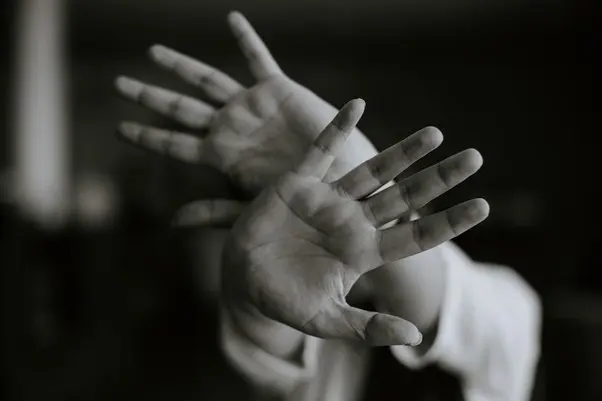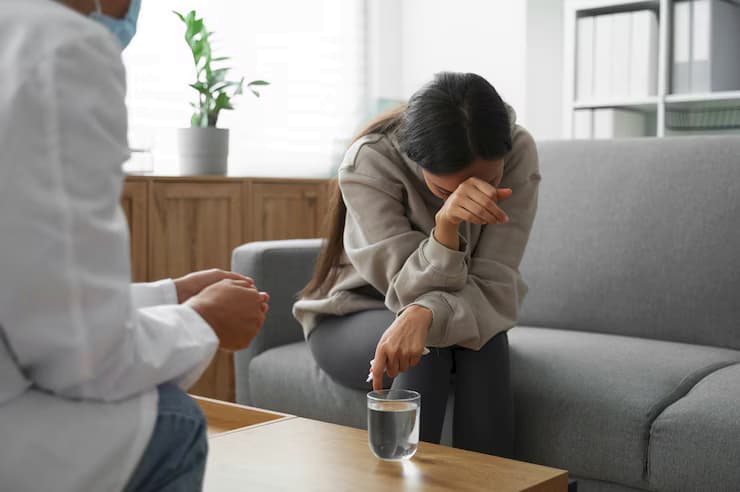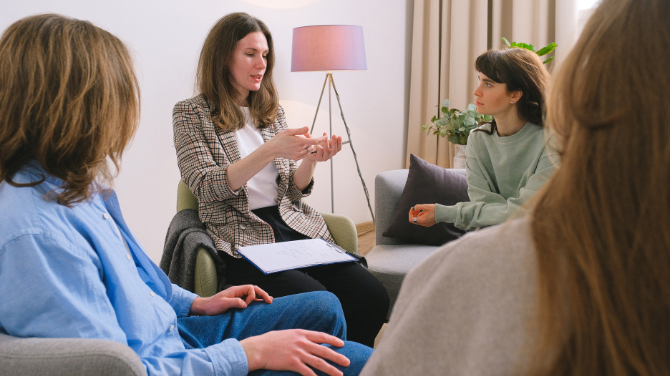"From Panic to Peace: Navigating the Waves of Anxiety"

Strong 8k brings an ultra-HD IPTV experience to your living room and your pocket.
Understanding Anxiety: A Common Human Experience
Anxiety is a natural response to stress, rooted deeply in human evolution as a survival mechanism. When faced with a threat, our bodies activate a fight-or-flight response, which can be incredibly useful in dangerous situations. However, in the modern world, this response is often triggered by non-life-threatening events such as work pressure, social interactions, or financial worries.
For many, these feelings pass once the stressor is gone. But for others, anxiety becomes a chronic condition that interferes with daily life. If you're experiencing prolonged worry, panic attacks, or physical symptoms like a racing heart, fatigue, or restlessness, you're not alone. According to the World Health Organization, over 264 million people worldwide suffer from anxiety disorders.
The Different Faces of Anxiety
Anxiety isn't a one-size-fits-all condition. It comes in various forms, including:
Generalized Anxiety Disorder (GAD): Persistent and excessive worry about everyday issues.
Panic Disorder: Recurrent panic attacks characterized by sudden, intense fear.
Social Anxiety Disorder: Intense fear of social situations or being judged by others.
Specific Phobias: Irrational fear of a specific object or situation.
Obsessive-Compulsive Disorder (OCD): Intrusive thoughts (obsessions) and repetitive behaviors (compulsions).
Post-Traumatic Stress Disorder (PTSD): Anxiety following a traumatic event.
Recognizing which type of anxiety you are dealing with is the first step in addressing it effectively.
Moving from Panic to Peace: First Steps
Transitioning from a state of panic to a place of peace requires acknowledging your anxiety without judgment. It starts with awareness. Begin by noting your triggers, how your body responds, and the thoughts that accompany your anxious feelings.
Practicing mindfulness, breathing exercises, and journaling are effective tools for increasing self-awareness. Grounding techniques such as the 5-4-3-2-1 method (identifying five things you can see, four you can touch, three you can hear, two you can smell, and one you can taste) help bring your mind back to the present moment.
Therapy: A Pathway to Healing
One of the most effective treatments for anxiety is therapy. Cognitive Behavioral Therapy (CBT) is widely regarded as the gold standard. It helps individuals identify and reframe negative thought patterns and behaviors that fuel anxiety. Other therapeutic approaches, such as exposure therapy, Acceptance and Commitment Therapy (ACT), and Dialectical Behavior Therapy (DBT), also offer relief.
Working with a licensed therapist provides a safe space to explore your anxiety and learn coping strategies. Many therapists now offer virtual sessions, making access more convenient than ever before.
Lifestyle Changes That Support Mental Wellness
Your daily habits play a significant role in managing anxiety. Here are some lifestyle adjustments that can make a big difference:
Exercise Regularly: Physical activity releases endorphins, the body's natural stress relievers.
Sleep Well: Poor sleep can exacerbate anxiety. Aim for 7-9 hours of quality sleep per night.
Eat a Balanced Diet: Nutrient-rich foods support brain function and mood regulation.
Limit Caffeine and Alcohol: Both can increase anxiety symptoms.
Stay Connected: Maintain supportive relationships. Social support is a buffer against stress.
Medication Options: Finding What Works for You
For some, lifestyle changes and therapy may not be enough. Medication can be a helpful part of an anxiety treatment plan, especially for those with severe or persistent symptoms.
There are several categories of anxiety medications:
Selective Serotonin Reuptake Inhibitors (SSRIs): Commonly prescribed and include medications like sertraline (Zoloft) and fluoxetine (Prozac).
Serotonin-Norepinephrine Reuptake Inhibitors (SNRIs): Such as venlafaxine (Effexor XR).
Benzodiazepines: Fast-acting but generally recommended for short-term use due to risk of dependency.
Beta-blockers: Help manage physical symptoms of anxiety, especially in performance situations.
Buspirone: A non-addictive anti-anxiety medication suitable for long-term use.
If you’re considering medication, consult a healthcare provider for a comprehensive evaluation. For those seeking convenience, you can now obtain the best anxiety medication online through licensed telehealth platforms, which provide access to doctors and prescriptions from the comfort of your home.
Integrating Natural and Holistic Approaches
In addition to conventional treatments, many people find relief in holistic practices. These can complement therapy and medication:
Meditation and Mindfulness: Proven to reduce anxiety and improve emotional regulation.
Yoga: Combines movement, breathwork, and meditation.
Aromatherapy: Scents like lavender and chamomile have calming effects.
Herbal Supplements: Such as valerian root, ashwagandha, and passionflower (consult a doctor before use).
Digital Tools: Apps and Online Resources
Technology can be a powerful ally in managing anxiety. Numerous apps offer guided meditations, breathing exercises, CBT-based tools, and mood tracking. Some popular options include:
Calm
Headspace
Moodpath
BetterHelp (connects users with licensed therapists)
If you're exploring treatment options, platforms offering the best anxiety medication online also provide comprehensive care, including therapy sessions, prescription management, and mental health education.
Creating a Personalized Anxiety Management Plan
Everyone’s anxiety journey is unique, and so should be your approach to healing. A well-rounded plan might include:
Regular therapy sessions
Daily mindfulness or meditation
Physical activity
Adequate sleep and nutrition
Medication if needed, obtained through trusted sources
Holistic practices that resonate with you
Write down your plan and adjust it as needed. Celebrate your progress, however small, and be compassionate with yourself during setbacks.
When to Seek Immediate Help
While anxiety is common, certain signs indicate a need for urgent professional intervention:
Thoughts of self-harm or suicide
Inability to function in daily life
Severe panic attacks
Substance abuse as a coping method
In such cases, contact a mental health professional, visit the nearest emergency room, or call a crisis line immediately.
Final Thoughts: Embracing the Journey from Panic to Peace
Navigating the waves of anxiety is a deeply personal experience, but it's one you don’t have to face alone. With the right tools, support, and mindset, it’s possible to move from a place of panic to one of peace and empowerment.
Whether you’re trying therapy, adjusting your lifestyle, or exploring the best anxiety medication online, know that healing is not linear. It’s a journey of small steps, and each one is a victory. Stay curious, stay hopeful, and above all, be gentle with yourself.
Note: IndiBlogHub features both user-submitted and editorial content. We do not verify third-party contributions. Read our Disclaimer and Privacy Policyfor details.







